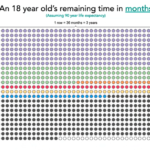Just before Christmas, the Oxford Dictionary announced that the 2024 Word of the Year was “Brain rot.”
Defined as: “the supposed deterioration of a person’s mental or intellectual state, especially viewed as the result of overconsumption of material (now particularly online content) considered to be trivial or unchallenging,” I feel it highlights a growing awareness of how our brains are being affected by our online habits. The next challenge for us all, I suppose, is actually doing something about it.
Like many, I need to consciously disengage from technology, as I’ve developed a level of addiction to my phone. My plan for 2025 was to reduce my screen time—but I ended up getting some unexpected help.
We spent the holidays on the South Coast of NSW, where the area struggles with internet capacity during the Christmas rush due to an influx of Sydneysiders. Despite this, I still found myself checking messages and social media whenever I could. Then, in a fortunate twist, my iPhone battery stopped charging entirely. This left me with 10 days of being completely device-free—the longest I’ve gone without a phone in years.
At first, I felt anxious about some odd things. The obvious ones were not being able to check emails or receive calls. But there were also strange worries, like not updating Strava after a run or not checking the tides or weather. Surprisingly, life carried on. I still ran, someone always knew the tides and wind conditions, and as for the weather—I simply looked outside.
Once I stopped trying to check my phone, I genuinely relaxed and began observing others’ behaviour. Even though reception was almost non-existent, people still carried their phones everywhere, checked for messages, tried to get signal in different spots, and attempted to keep up with social media. It was largely futile, but they couldn’t seem to stop.
When we returned home, I got a new phone and reconnected with the world. Turns out, I’d missed almost nothing. There were a few work emails and family announcements, but nothing that required urgent attention.
However, with a shiny new device in hand, I quickly slipped back into old habits.
So, what did I do about it?
The first thing I did was set screen time limits on my phone and various apps, especially social media. I turned off notifications for emails and many other apps to stop the constant dinging. I also removed the phone charger from my bedroom.
As a family, we revisited our technology agreement. While this wasn’t met with much enthusiasm, it was a valuable exercise. We all sat together, discussed what we wanted, and talked about what was important to each of us.
Our updated agreement places greater emphasis on balancing screen time throughout the week, rather than allowing weekend binges. My wife and I are committing to doing more work on our computers instead of our phones, and for my son, we’ve allowed some games that were previously off-limits.
One week in and I have already reduced my screen time by a third. My phone now stays away after dinner, and an alarm clock has replaced it in my bedroom. Managing screen time during the school holidays, with extra kids in the house and rainy days, hasn’t been easy. But we’re doing our best.
As we kick off 2025, I encourage you to revisit your own family’s technology habits. Let’s bid farewell to 2024 and wave goodbye to “Brain rot.”







